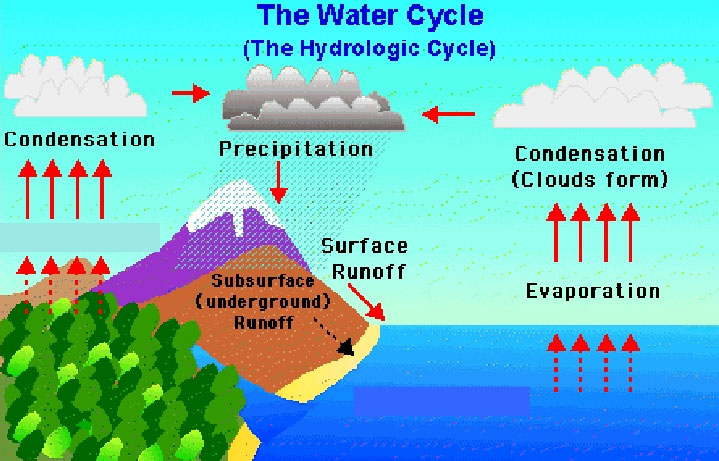Question: Write about the main effects of the ocean currents. Give examples wherever possible.
Answer: Ocean currents exercise great influence on the climate and economic activities of the coastal areas. Some of them are:
- Ocean current influence the distribution of temperature over the globe. The warm and cold currents increase or decrease the temperature of the coastal area.
- Warm currents increase the moisture bearing capacity of the wind, while cold currents decrease the same. Deserts are mostly found along the western side of the continents, along which the cold current flow.
- Mixing of cold and warm currents causes dense fog, which hampers navigation.
- The best fishing grounds of the world are found where warm and cold current meet. Thus, areas around Newfoundland and Japan are rich in fish.
- Ocean currents help in navigation. A ship sailing along a current will go faster, thus saving time and fuel.
- Warm currents help in keeping the seaport ice free, and thus help it to remain open throughout the year even in higher latitudes.
- Warm currents reduce the danger of icebergs for the sailing ships.
Question: Explain the working of hydrological cycle or water cycle with the help of a neatly labeled diagram.
Answer: The working is as follows:
- Water is continuously moving from the earth’s surface into the atmosphere and back again to the earth’s surface.
- Water from the different water bodies reaches the atmosphere through evaporation in the form of water vapour.
- Due to the loss of heat in the atmosphere, the process of condensation takes place. Thus, water vapour is converted back into water drops.
- This leads to the precipitation in the form of rain, snow or sleet.
- Water that falls on the land in the form of rain collects in ponds or flows as streams or rivers.
- This never-ending movement of water is called hydrological cycle or water cycle. Thus, the water cycle has no beginning or end.
Question: Why is ocean water salty?
Answer: The ocean water is salty because it contains mineral salts. They enter the ocean through rivers, which pass over rocks and soil picking up salt along the way.
 Class Notes NCERT Solutions for CBSE Students
Class Notes NCERT Solutions for CBSE Students




This is very helpful to all.